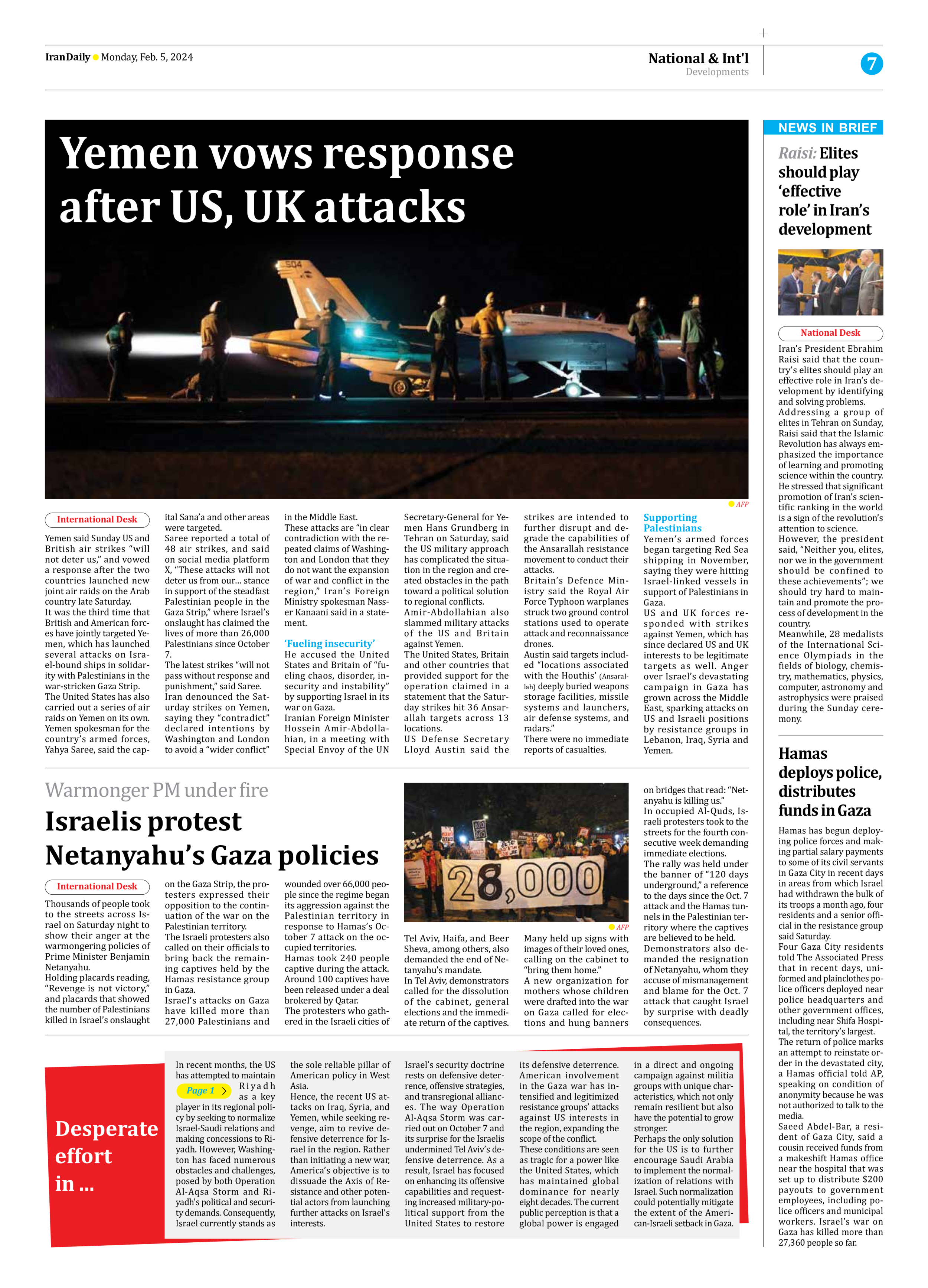
Desperate effort in ...
Page 1
In recent months, the US has attempted to maintain Riyadh as a key player in its regional policy by seeking to normalize Israel-Saudi relations and making concessions to Riyadh. However, Washington has faced numerous obstacles and challenges, posed by both Operation Al-Aqsa Storm and Riyadh’s political and security demands. Consequently, Israel currently stands as the sole reliable pillar of American policy in West Asia.
Hence, the recent US attacks on Iraq, Syria, and Yemen, while seeking revenge, aim to revive defensive deterrence for Israel in the region. Rather than initiating a new war, America’s objective is to dissuade the Axis of Resistance and other potential actors from launching further attacks on Israel’s interests.
Israel’s security doctrine rests on defensive deterrence, offensive strategies, and transregional alliances. The way Operation Al-Aqsa Storm was carried out on October 7 and its surprise for the Israelis undermined Tel Aviv’s defensive deterrence. As a result, Israel has focused on enhancing its offensive capabilities and requesting increased military-political support from the United States to restore its defensive deterrence. American involvement in the Gaza war has intensified and legitimized resistance groups’ attacks against US interests in the region, expanding the scope of the conflict.
These conditions are seen as tragic for a power like the United States, which has maintained global dominance for nearly eight decades. The current public perception is that a global power is engaged in a direct and ongoing campaign against militia groups with unique characteristics, which not only remain resilient but also have the potential to grow stronger.
Perhaps the only solution for the US is to further encourage Saudi Arabia to implement the normalization of relations with Israel. Such normalization could potentially mitigate the extent of the American-Israeli setback in Gaza.







